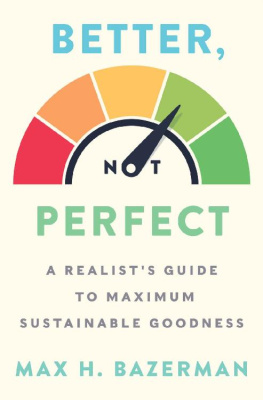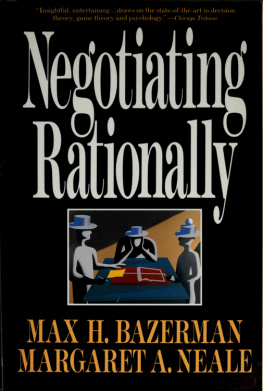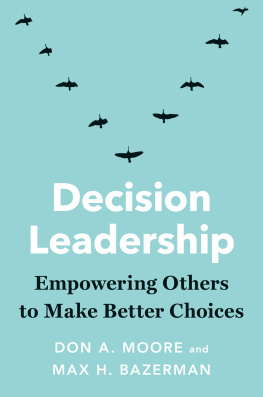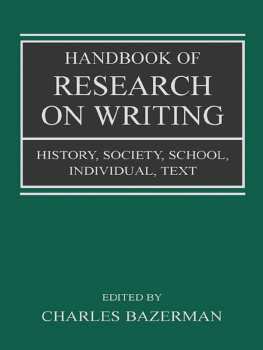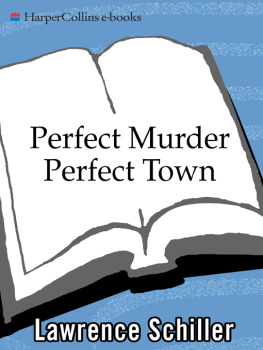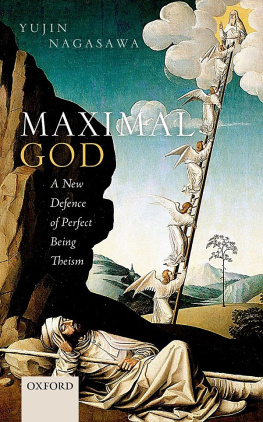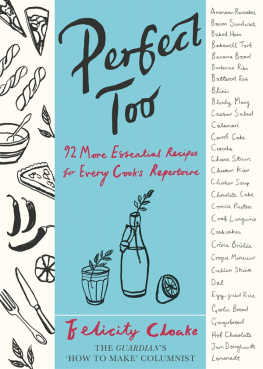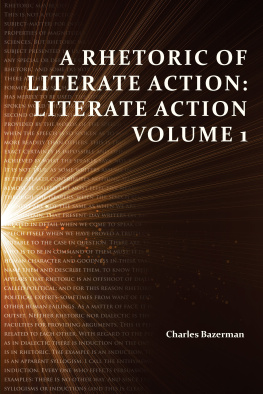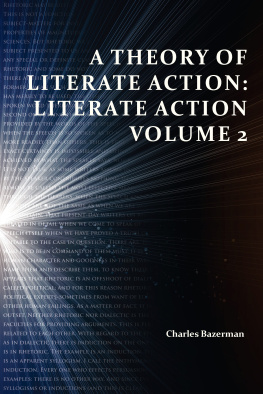Max H. Bazerman - Better, Not Perfect
Here you can read online Max H. Bazerman - Better, Not Perfect full text of the book (entire story) in english for free. Download pdf and epub, get meaning, cover and reviews about this ebook. year: 2020, publisher: HarperCollins, genre: Politics. Description of the work, (preface) as well as reviews are available. Best literature library LitArk.com created for fans of good reading and offers a wide selection of genres:
Romance novel
Science fiction
Adventure
Detective
Science
History
Home and family
Prose
Art
Politics
Computer
Non-fiction
Religion
Business
Children
Humor
Choose a favorite category and find really read worthwhile books. Enjoy immersion in the world of imagination, feel the emotions of the characters or learn something new for yourself, make an fascinating discovery.
- Book:Better, Not Perfect
- Author:
- Publisher:HarperCollins
- Genre:
- Year:2020
- Rating:5 / 5
- Favourites:Add to favourites
- Your mark:
- 100
- 1
- 2
- 3
- 4
- 5
Better, Not Perfect: summary, description and annotation
We offer to read an annotation, description, summary or preface (depends on what the author of the book "Better, Not Perfect" wrote himself). If you haven't found the necessary information about the book — write in the comments, we will try to find it.
Better, Not Perfect — read online for free the complete book (whole text) full work
Below is the text of the book, divided by pages. System saving the place of the last page read, allows you to conveniently read the book "Better, Not Perfect" online for free, without having to search again every time where you left off. Put a bookmark, and you can go to the page where you finished reading at any time.
Font size:
Interval:
Bookmark:
Dedicated to the amazing characters
described in this book who have been core
to showing me the path to be better:
Rachel Atcheson
Becca Bazerdog
Mark Budolfson
Dolly Chugh
Marla Felcher
Bruce Friedrich
Josh Greene
Will MacAskill
Doug Medin
Peter Singer
In 1993, when I was on the faculty of Northwestern University, I gave a talk at a conference on behavioral science and the environment at the Allen Center, a rather nondescript modern building in Evanston, Illinois, marked by its expansive views of Lake Michigan. In passing, I mentioned that I had become a vegetarian. Someone in the audience made a comment in which he referred to himself as a vegetarian, too, but one who ate fish. I responded, That would make you a fisheterian. I knew the word pescatarian, but I was making a very bad attempt at humor. After the talk, the cognitive psychologist Doug Medin approached me. Before I tell you what he said, its important to know that Doug is a friend of mine whos very mild-mannered, nice, and brilliant. Max, Doug said, your combative comment to the guy who ate fish was really stupid. Stupid stood out, coming from Doug, but it was accurate. Doug went on to argue, convincingly, that allowing the fish eater to claim vegetarianism would make him less likely to become a red-meat eater and even, in time, more likely to stop eating fish. His point was that each positive step a person takes should be encouraged, rather than highlighted for what it lacks.
I knew Doug was right. With my snarky remark, I had been trying to get the commenter to be more ethicala poor strategy from lots of perspectives. First, I was trying to impose my goals on another person by suggesting that his ethical behavior was in need of improvement. I was also applying my own value systemparticularly, the notion that fish eating is morally wrongto encourage him to question his fish consumption. In addition, I was failing to think like a social scientist about what would actually lead another person, one I didnt know well, to change his behavior. I am confident that my effort flopped and that Doug understood the psychology of changing the commenters ethical behavior better than I did.
Over the last few decades, I havent given up on trying to be more ethical and insightful myself or on encouraging others to be more ethical, but I think Im going about it in a more effective way. Writing this book has helped me think through how to be more effective at meeting these goals. If Im successful, this book will make you bettermore successful, more ethical, and more effective at creating value for others. Well explore the latest theories and research findings on what we now know works when it comes to helping people, including ourselves, reach what I call their maximum sustainable level of goodness.
Of course, to do so, well need to reach a shared definition of ethics. Ill depart from utilitarian philosophy, and most philosophies, in that I wont judge the ethicality of your current behavior. Rather, lets assume that all of us would like to create more value for ourselves and othersand that we have more capacity than we realize to be better. I wont expect you to share my values or priorities on issues that have ethical dimensions, such as vegetarianism. I dont want to define a narrow set of societal rules for good behavior. I certainly wont guide you toward adhering to a specific religion. I wont urge you to always tell the truth or to reveal all of your information to your negotiation opponent.
Instead, well use the word ethics similarly to how utilitarian philosophers use the term: to achieve the greatest good by creating as much value as possible for all sentient beings in the world. By creating more value, you will be better and do better. Our goal will be to identify concrete steps to access our capacity to create more value and reach what Ill refer to as our maximum sustainable level of goodness. That is, the goal wont be to push you toward perfection, but to encourage you on the path of goodness at a level that you can sustain and enjoy for the rest of your life.
WHAT LIES AHEAD
In the first five chapters, well explore a new mindset for improving moral decision making that underlies my prescriptive approach (more on that later) to improving ethical behavior. will provide prompts for noticing opportunities to create value that too often escape our attention.
The next four chapters will focus on applying these ideas to areas where most of us can improve: equality/tribalism, reducing waste, using our time better, and making more effective charitable decisions. The final section of the book will offer additional guidance on how to leverage your potential by influencing others to make decisions for the greater good. We will close with some thoughts on how we can achieve our maximum sustainable goodness.
Ethical challenges are not new, but new and different ones are arising every day. Bernard Madoffs theft of billions of dollars reminds us that we are more vulnerable to crooks than ever beforeand perhaps more willfully ignorant of their crimes. Terrorism raises tough decisions about what processes are appropriate to get the information thats needed to keep people safe. As companies dream up ever-increasing ways to make our lives easier, our environmental footprint grows deeper and more damaging by the day. In the United States, citizens are challenged on how to act when national leadership no longer shows a preference for truth. In many countries, finding collective value has disappeared as a national goal. We urgently need to find and follow a North Star that creates more ethicality and more value, and that supports us in simply doing better.
In April 2018, I was scheduled to be interviewed at an Effective Altruism conference at the Massachusetts Institute of Technology, about three miles from my home in Cambridge, Massachusetts. Unable to attend the whole conference, I arrived about an hour before my interview. I entered a large room filled with a few hundred attendees, most of them under the age of thirty, and had the somewhat random, and definitely lucky, opportunity of hearing the speaker before me, Bruce Friedrich. I had not met Bruce before, but his talk rocked my worldpersonally and academically. A lawyer and the CEO of the Good Food Institute (gfi.org), Bruce introduced me to a new way of thinking about reducing animal suffering. He noted in his talk that the growth of vegetarianisma commitment to eating no meat or fishhas been very limited. One clear reason for this is that preaching to your friends about the virtues of vegetarianism is not an effective way to change their behavior or maintain your relationships with them. So, what can a vegetarian do to help others also leverage the benefits of lower consumption of animals and improve society (by improving the environment and human health, making our food production more efficient so that we can feed the worlds hungry, and reducing the risks of a growing antibiotic crisis)?
Bruce answered this question by introducing a world of entrepreneurs, investors (some amazingly wealthy), and scientists who are working with the Good Food Institute to create and encourage the consumption of new meats that taste very similar to meat, without requiring the pain, suffering, or death of any animals. These alternative meats included new plant-based products already on the market (such as Beyond Meat and the Impossible Burger), as well as cultivated (also called clean or cell-based) meat that will be grown from the cells of real animals in a lab and produced without the need for more animal deaths. Bruce argued that producing meat alternatives that are tasty, affordable, and readily available in grocery stores and restaurants is a much more fruitful means of reducing animal suffering than preaching about the negative effects of meat consumption. Its a profitable enterprise, too: within a year of Bruces talk, at its initial public offering, the relatively new company Beyond Meat was worth $3.77 billion. Months later, the companys value soared billions higher.
Font size:
Interval:
Bookmark:
Similar books «Better, Not Perfect»
Look at similar books to Better, Not Perfect. We have selected literature similar in name and meaning in the hope of providing readers with more options to find new, interesting, not yet read works.
Discussion, reviews of the book Better, Not Perfect and just readers' own opinions. Leave your comments, write what you think about the work, its meaning or the main characters. Specify what exactly you liked and what you didn't like, and why you think so.

